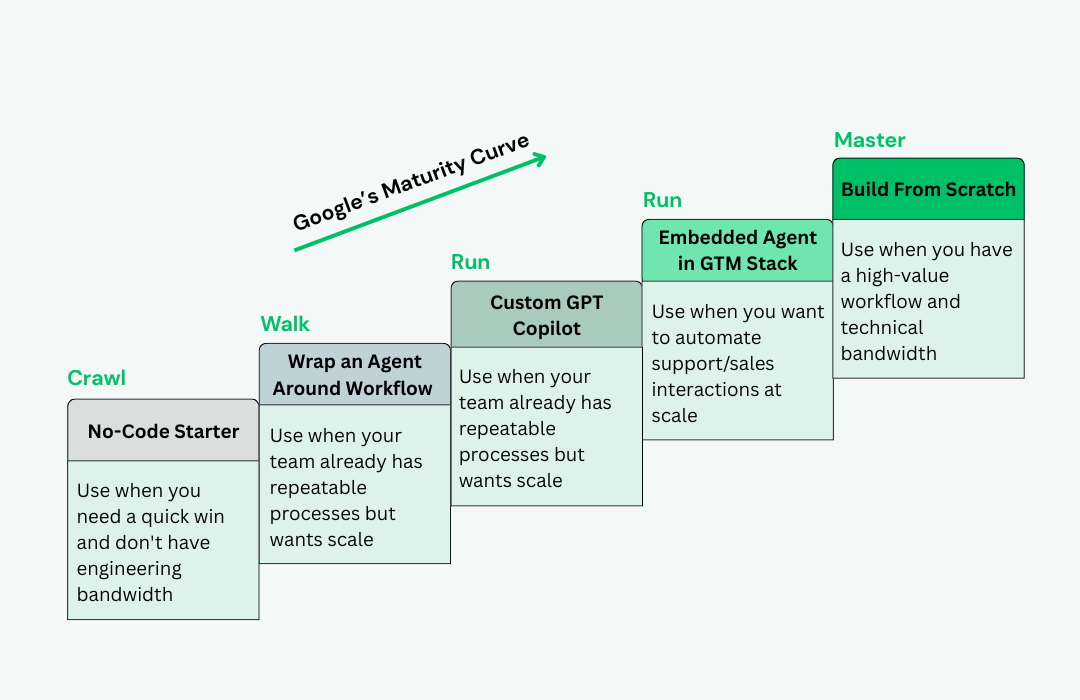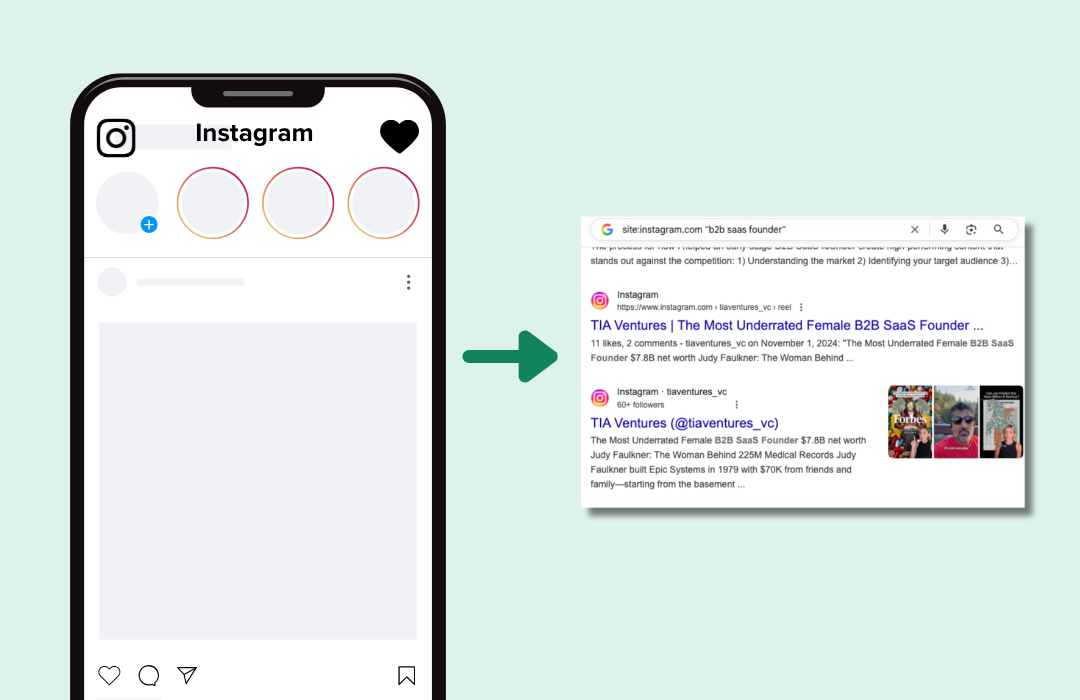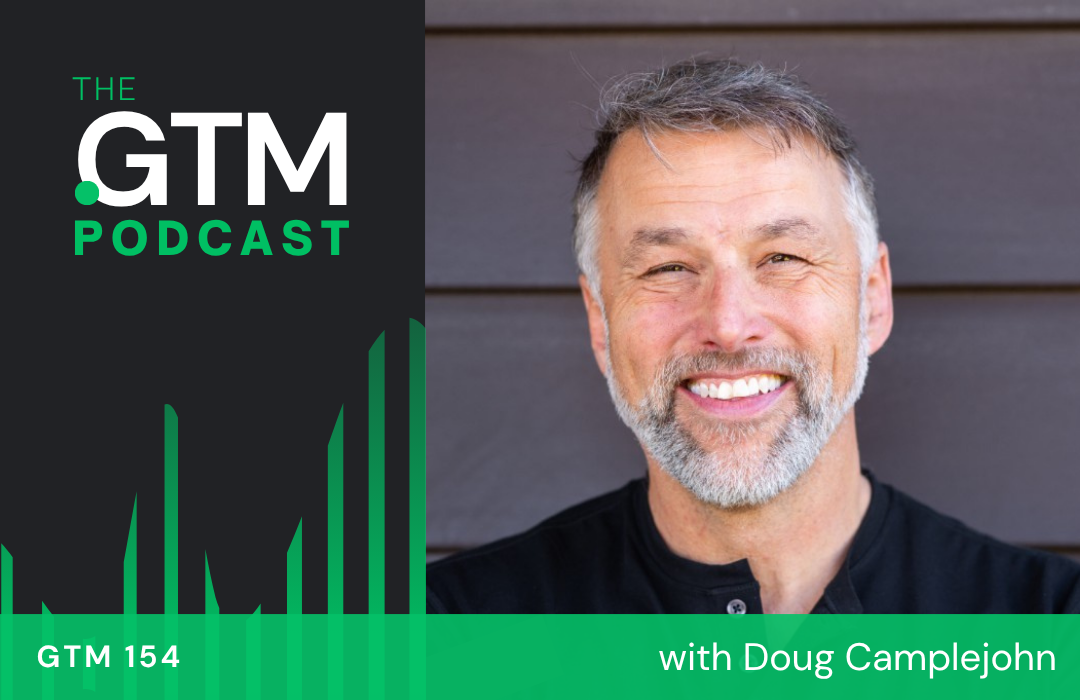This week on the Sales Hacker podcast, we speak with Scott Armour. Scott is the Chief Revenue Officer at Nextiva. After 16 years at IBM, Scott has learned a thing or two about assessing marketing strategy and how effective your product is. Listen to today’s episode for bite-size takeaways that you can implement with your business!
If you missed episode 58, check it out here: PODCAST 58: Evolution of Scaling a Business and Shaping the Future of Modern Organization w/Jake Dunlap
What You’ll Learn
- What are Scott’s key principles to success?
- How to position yourself for success.
- How to focus on the “how” of your product.
- How to assess your go to market strategy.
Subscribe to the Sales Hacker Podcast
Show Agenda and Timestamps
- Show Introduction [00:09]
- About Scott Armour: An Introduction [01:45]
- Focus on the How, Not the What [13:52]
- The Benefits of Specialization [20:45]
- The Business Acumen of a CRO [25:19]
- The Flip Between Sales and Marketing [29:09]
- Influences [34:42]
- Sam’s Corner [40:15]
Show Introduction
Sam Jacobs: Hey, everybody. It’s Sam Jacobs. Welcome to the Sales Hacker Podcast. We’ve got a great show this week with Scott Armour who just joined Nextiva as Chief Revenue Officer. Scott has had a multi-decade career specializing in building and scaling sales organizations.
Now we want to thank our sponsors. We’ve got two this week. Conga is the leading end-to-end digital document transformation suite. With Conga, you can simplify documents, automate contracts, and execute e-signatures so you can focus on accelerating sales cycles and closing business faster. Our second sponsor is Outreach, the leading sales engagement platform that enables sales reps to humanize their communications at scale, from automating the soul-sucking manual work that eats up selling time to providing action-oriented tips on what communications are working best. Outreach has your back.
About Scott Armour: An Introduction
Sam Jacobs: We’re incredibly excited to have Scott Armour on the show. Scott is the Chief Revenue Officer at Nextiva where he is responsible for global growth strategy. He has had a multi-decade career specializing in building and scaling sales org at Oracle Digital, IBM, and several other early-stage tech companies.
What does Nextiva do?
Scott Armour: Nextiva is in the business communications space. We’re taking traditional communications up into the cloud. So things like voice, voice over IP, call center, advanced contact center, all those types of services, delivering those through the cloud to businesses.
Sam Jacobs: Nextiva does over $100 million in revenue. Is that right?
Scott Armour: That is correct. And we’re a subscription-based business, so that’s a very healthy revenue stream. We have over 1,000 employees. The company is 10 years old. It’s privately held, founder based. Most of the employees are in Scottsdale, although we have large facilities in Ukraine. And of those 1,000 employees, about 300 do the revenue-producing.
I built my career around what you would probably consider more E-ticket [thrilling] rides. Some people like to go to Fantasyland [in Disneyland] and I’m more of a Tomorrowland guy. I’m never bored. There’s a lot going on. We’re changing quickly. Growing quickly.
Sam Jacobs: So how’d you get in to sales?
Scott Armour: My father worked for IBM back in the day. I was an IBM baby, moved coast to coast several times. To the families, IBM stood for, “I’ve been moved.” I ended up with a math degree, but there’s not a lot you can do with a math degree except teach or go to grad school. And neither of those was interesting to me.
Sam Jacobs: You can become an actuary at an insurance company.
Scott Armour: That’s probably also not that E-ticket experience I was looking for. My father had been in sales. I saw him enjoying what he did and thought I would enjoy that as well. I’ve built a great career on selling, and it’s interesting because not everyone’s in sales, but if you think about sales skills, no matter what your role is, you’re always selling something. You’re selling yourself, your ideas. So developing a good set of sales skills is beneficial to anyone, no matter what their role is or what their aspirations are.
When I joined IBM I spent 18 months in training before they’d actually let me talk to real customers. It was a great foundation. I was there 16 years and then IBM made the mistake of giving me the opportunity to build a new business. It was the hardest I ever worked, but it was the most satisfying thing I’d ever done. And it was a global business.
I spent the next 12 years doing really early stage companies, startups that had blown through their initial round of funding and the investors were not going to put more money into the company without some adult supervision, and that was me. A friend invited me to Oracle where I spent four years.
Then I took a sabbatical, hiked the entire Appalachian trail with my son. After finishing that, Thomas called me and gave me this opportunity.
Focus on the How, Not the What
Sam Jacobs: What are your key tenets or principles when you’re assessing a situation?
Scott Armour: You focus on the how more than the what. Early in my career I learned from the early failure of focusing on the what of making my sales number, without thinking about the how of making the number. What you end up with is tactical success, but not sustained success. And if you think about the way stocks and companies are valued, those that have predictable, consistent success are going to be valued over those that spike and valley.
Whether you’re an individual contributor, manager, or leader, your quality of life is much better when you have predictable, sustained, consistent success. It might take a little more time, but it always ends up better in the end.
You see in new sellers, the bright-and-shiny-objects-syndrome where you get so focused on getting a deal closed that you don’t put effort into prospecting and building the pipe. So you get that spike and valley type of performance. As sellers mature, they learn that lesson and focus on developing pipe even while they’re closing deals.
Another good example is the great white whale. There’s this huge deal out there that everyone gets excited about. You’ve got to make sure you’ve got a healthy portfolio, so you’re not depending on that one deal to get to goal.
Sometimes it’s tempting to do what the customer wants if you’re focusing on the how, not the what. I’m just going to tell my company here’s what we need to do to get that order. But if you focus on the how for sustained success, you should be listening to that customer, trying to understand how your products or solutions are going to add value. That takes more time on the front end, but the stickiness of your sale is much higher, you’re going to get a lot more value at your higher price point.
The Benefits of Specialization
Sam Jacobs: So when you’re coming to an organization, how are you approaching that pipeline generation capability and developing it?
Scott Armour: What’s the current state, what’s the aspirational state, what are the gaps and how do you address them? What are my skill sets? What’s my organization, what’s my go to market model? Oftentimes what you find, especially in earlier stage companies, is you wear a lot of hats. If something needs doing, you just do it. But as you grow up, when you are at 1,000 employees, you have more specialized roles.
When I ask somebody to recruit or prospect for new business and then develop that business and then close that business and then manage the customer, if you have one person trying to do all of those things, they’re either going to focus on the skill they’re most comfortable with, or they’re going to focus on the one where they’re having the most success. How do we specialize some of these roles? You get more focused results and the overall company ends up accomplishing a better and healthier set of outcomes.
The Business Acumen of a CRO
Sam Jacobs: There are a lot of questions these days about the differences between a VP or SVP of sales and a CRO.
Scott Armour: The most important person’s perspective on that is your CEO or your founder. The difference is really the level of business acumen that you bring. As a salesperson, it’s all about making the number. As a sales manager it’s managing your team. VP of sales is still very focused on making numbers and probably less concerned with the long-term growth strategy of a company.
Why was the role of CRO created? Because we need somebody who can sit at the executive table with an overall business perspective and manage sales within the confines of a longer term business strategy or business plan, as opposed to being focused on that annual number or earnings.
Sam Jacobs: What helped you develop that business acumen?
Scott Armour: I’m a big advocate for company hopping, but I have had an opportunity through the breadth of businesses I’ve worked in to get broad experience that has been helpful. Being a math major was all about problem solving. If you look at my sales career, it wasn’t necessarily because the people I was selling to liked me or I took them golfing or out to dinner. I put a compelling business case behind the proposal I was selling to the point where you just couldn’t deny the fact that this is something they needed to do. That approach forced my selling to get more around business and less around just making numbers. I think that approach helped elevate my career. Because again, CEOs, boards, they’re not just looking for sellers in these senior leadership roles. They’re looking for business people who understand the revenue side of the business.
The Flip Between Sales and Marketing
Sam Jacobs: You’ve seen different things come in and out of fashion when it comes to sales and go to market strategy. What are the key things that have changed or evolved over the last couple of decades?
Scott Armour: I don’t think the art of selling has changed dramatically. If you’re really good at selling one thing, you could probably be good as selling another.
What has changed dramatically is the role of the consumer. When I started selling, the only real avenue for information was salespeople. If you think about the sales process, it was pretty heavy. You meet with the customer, you put them down on the couch, you do your long discovery. The customer had to invest in that extensive selling cycle because it was the only way they could get good information to make an informed decision.
With the advent of the Internet and social media, now most buyers get 60-70% of the way through their buying process before they bother engaging a salesperson. That fundamentally changes what a company needs to do. It used to be a little bit of marketing, a whole lot of sales. Marketing now becomes a much more critical role because we need to make sure that we’re properly influencing the thinking of that prospect during that 60-70% of the buying cycle where they’re not engaging with our selling people.
As salespeople, you’re engaging later in that process. You’re seeing that with companies like Oracle that are shifting away from the traditional outbound selling model, which is very slow and expensive, and moving toward inbound selling models, which are a lot more flexible and economic and better attuned to the new buying habits.
RELATED: The SaaS Executive’s Guide To Building A Winning Go-To Market Strategy
Influences
Sam Jacobs: When you think about either people that we should know about or books we should be reading, what pops in your mind?
Scott Armour: I’m going to give you two books. One is called The Greatest Salesman in the World by Og Mandino. That book talks about eight habits that very effective salespeople have. The power of the book is probably more about habits and how an individual can change habits to drive better outcomes.
The second one is a book called The Elements of Style by Strunk & White. Effective business communication is a lost art form. I see that with a lot of the folks that I lead and manage. It’s powerful though and still necessary. Strunk & White is great because it’s a very quick little primer on how to tighten up your communication. And I think communication skills as a seller and as a leader are critical.
Sam Jacobs: Elements of Style is a classic. Last question. What’s the biggest thing you learned hiking the Appalachian Trail? What did you and your son do to make sure you didn’t kill each other?
Scott Armour: So, two things. One, my son is very even-keeled. As you can imagine on the trail, you’ve got highs and you’ve got days where it’s windy and cold and it sucks. I tended to celebrate the highs and get grouchy on the lows, and my son was amazingly even-keeled through all those experiences. And it was a great lesson to me.
The other thing I would suggest is it showed me the power of goal setting. I set the goal to hike the Appalachian Trail when I was 12. I finally did it when I was 55. Setting that early goal provided the motivation and ultimately it happened.
Sam’s Corner
Sam Jacobs: Hey, everybody, this is Sam’s Corner. Great conversation with Scott Armour. He had a plethora of really interesting and useful insights.
What We Learned
- What are Scott’s key principles to success?
- How to position yourself for success.
- How to focus on the “how” of your product.
- How to assess your go to market strategy.
Don’t miss episode 60.
Of course, we want to thank our sponsors. Conga is the leading end-to-end digital document transformation suite. With Conga you can simplify documents, automate contracts, and execute esignatures. Our second sponsor is Outreach. Outreach is the leading sales engagement platform.
If you want to reach out to me with feedback, you can reach me on LinkedIn.
This has been the Sales Hacker Podcast. I’ll talk to you on Friday and thanks for listening.







